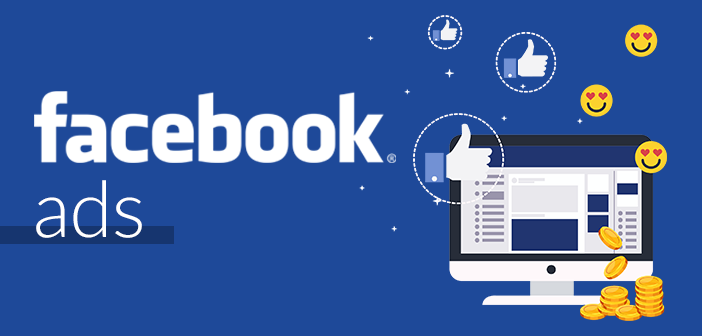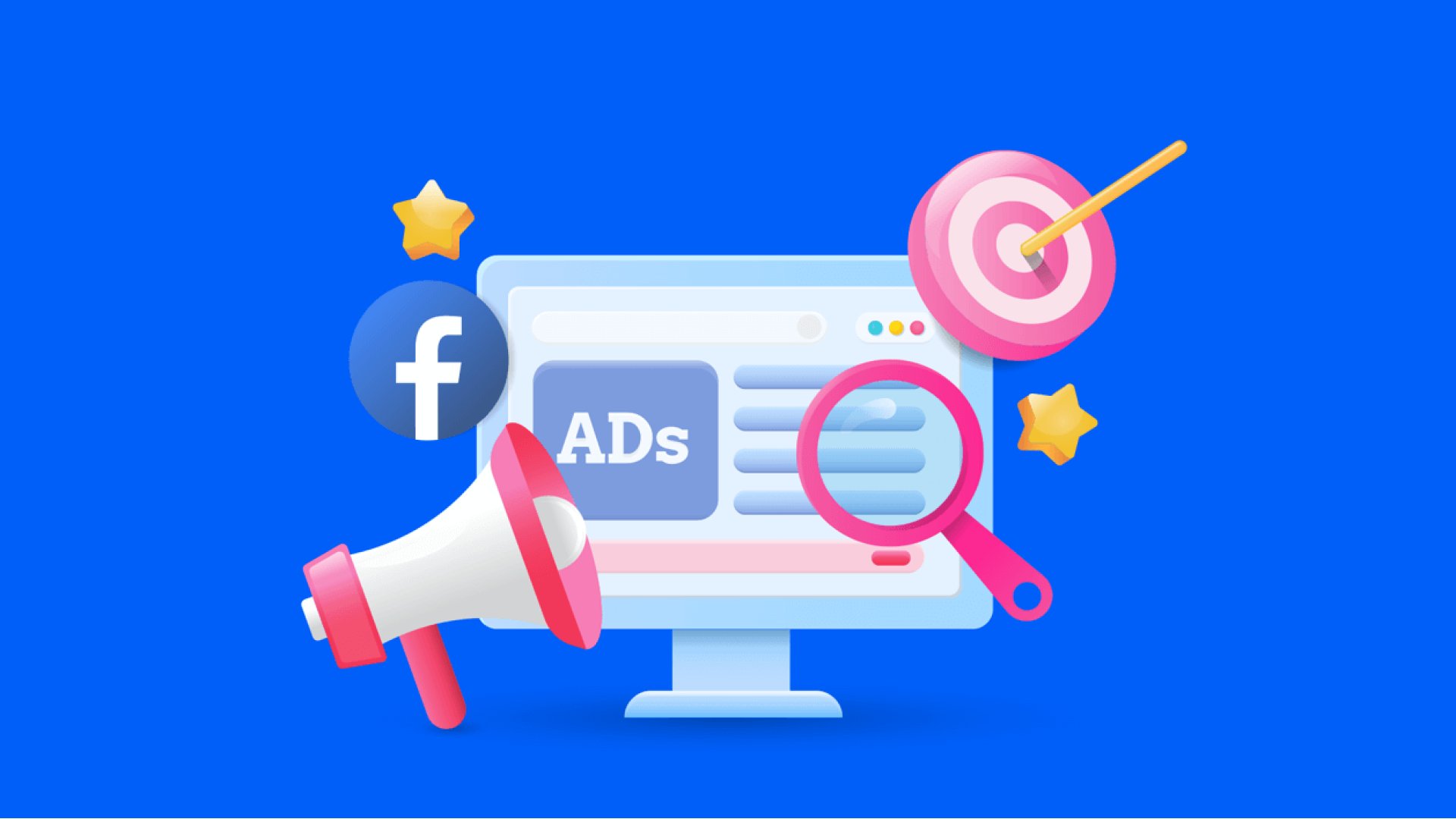If you've used Facebook you've seen Facebook ads. Do u want to know how these ads are coming? In this guide, we will tell you about how to run ads on Facebook and to be successful in executing it.
Facebook ads can be valuable because they’re highly targeted, cost-effective, and able to reach a wide audience. With a proper Facebook ad strategy in place, you can drive brand awareness and boost conversions for your business. Keep reading to learn how to get started with running a Facebook ad campaign.
Exploring the Essence of Facebook Ads
Facebook ads promote your business on Facebook’s social media platform. When you combine Facebook ads with audience segmentation tools, you can potentially reach people who can truly benefit from your services or products. In this guide, you'll learn how to run ads on Facebook, what it costs to do so, and how to do it effectively.
You may wonder, “Can I run Facebook ads myself?” Yes, anyone is free to post Facebook ads. However, to do so effectively, we recommend turning to Facebook Ads Manager. This feature gives you complete control over the platform’s targeting and audience tools, allowing you to maximize the impact of your social media ads.
It's critical that you reach the appropriate audience with your Facebook ads. Your target audience will actually serve as the foundation of your marketing campaign. With that said, there are three major target audiences to keep in mind:
- Saved audiences: Target your audience based on location, interests, income, behaviors, and similar criteria.
- Custom audiences: Target people who already know about your business. You may want to attract the attention of people in your customer list or those who have previously engaged with your website, for example.
- Lookalike audiences: If you know who your source audience is, you can target lookalike audiences. These audience members have the same characteristics as those who already buy your products. However, they have not interacted with your online content or brand.
Advantages of running a Facebook ads campaign
You can reach a wide audience and track your performance through a Facebook ad campaign. Below, we go into more detail about some of the specific benefits that come with running a Facebook ad campaign.

Reach a wide audience
When you run a Facebook ad campaign, you can potentially reach billions of consumers. In fact, as of 2023, Facebook has over 3.05 billion active users. What does that mean for your business? When you run ads on Facebook, you can get your brand in front of a massive audience and discover even more people who may be interested in what you have to offer.
Target specific audience segments
Facebook collects a lot of valuable data on its users. Marketers can use this information to reach their target customers. When you design and launch a Facebook ad, you have the option to target the age, gender, location and other demographics of those who see the ad. Facebook stands out from other platforms because it also allows you to target lifestyle characteristics such as the following:
- Interests
- Behaviors
- Education
- Previous purchases
- Income
- Political affiliation
- Spoken languages
- Major life events
Easily track performance
Meta, Facebook’s parent company, no longer offers Facebook Analytics. However, there are still many ways to measure engagement, reach, and conversions, among other statistics. What's more, you can track this data in real-time.
Facebook’s current analytics toolkit allows you to incorporate a Facebook Pixel on your website. You can easily add this with a simple string of code, and it allows you to track the performance of your Facebook Ads.
Engage in effective marketing at a low cost
How much do Facebook ads cost monthly? Well, that's a complicated question. You can set your budget, so you don't overspend. However, large national campaigns will obviously cost more than a short-term Facebook ad with local reach.
For example, if you set a budget of $5 per day and the month has 31 days, you will spend $155 that month. However, it takes sophistication, knowledge and experience to understand when, where, and how often to show your ads. Additionally, the size of your target audience can also shrink or expand your costs.
How to run ads on Facebook
In order to run a Facebook ad, you need to follow several steps. First, you'll create a Facebook Ads Manager account and start a new campaign. Next, you'll choose an objective, including what audience you wish to reach, and set your budget and schedule. Finally, you'll create a Facebook ad and monitor its performance. Keep reading to learn more about how the process works.
1. Create a Facebook Ads Manager account
To use Facebook Ads Manager, you need to set up a Facebook business page if you don't already have one. Note that you can't run Facebook ads through a personal account.
After you navigate to the Facebook Ads Manager, follow the steps below:
- Select "Go to Ads Manager."
- Confirm the information you entered on the setup page.
- Fill in your payment information.
- Save your changes.
You can now use Ads Manager to set up your campaign and track your ads.
2. Start a new campaign
Within the Ads Manager, you'll have your own dashboard where you can monitor campaigns. However, if you have never created an ad, the dashboard is empty. To create a campaign or ad set, select the type of ad you want and click "Create." Next, you’ll learn more about how to run an ad on Facebook.
3. Choose your objective
Facebook Ads Manager is intuitive and designed to make it easy for you to select a campaign objective. Like with many social media advertising tools, it’s designed with your campaign objective in mind. Ads Manager will ask you to choose an objective from a pre-populated list. Currently, there are 11 objectives, but this list is subject to change. It may include anything from brand awareness to increasing traffic to your e-commerce store.
Facebook's options for objectives include:
- Brand awareness
- Engagement
- App installs
- Reach
- Website traffic
- Video views
- Catalog sales
- Store traffic
- Lead generation
- Messages
- Conversions
For example, let's say you want to attract more visitors to your website. In that case, Facebook will prompt you to enter the corresponding URL. Therefore, if you use automatic tracking tools, create a unique URL so that you can track your success.
4. Set a budget and schedule
Choose whether you want to set a budget by the day or for the lifetime of the campaign. Although these are pretty self-explanatory, there are some differences to keep in mind. For example, the daily budget option runs the ad continuously throughout the day. Facebook paces your spending to match your budget, but there is a minimum of $1 per day for an ad set. With a lifetime budget, you run the ad for the specified time. Facebook then tracks your spending to spread your exposure over the ad’s lifetime budget.
There are additional options that allow you to further control your budget. It's a good idea to research how your competitors use these settings to maximize your ad campaigns.
But what if you don't want to run your ad immediately? In this case, you can set a schedule that includes parameters for the start and end dates and hours of the day that you would like to run the ad. This allows you to reach your customers when they're typically online. This is another great money-saving tool that allows you to stretch your budget.
5. Select a target audience
Whether you want to target residents in a specific neighborhood, appeal to those with a particular financial or educational background, or run ads specifically for men or women, Facebook has given you the ability to do so.
Facebook's built-in targeting options give you a lot of power and include the following:
- Location
- Age
- Gender
- Education
- Languages
- Relationship
- Home
- Work
- Behaviors
- Connections
- Financial
- Ethnic affinity
- Generation
- Life events
- Parents
- Politics
- Interests
There are other options that allow you to target people in your current contact database. It can help to learn how to manage a custom audience by following these instructions. As you can see, with a little time, care and attention, you can directly engage your target audience with strategically placed Facebook ads.
6. Create your Facebook ad
You have six ad formats to choose from that work on every imaginable device. You can even choose options that target specific connection speeds. For example, you can use an image or video in your ad or go for a multi-image format. In order to decide how you want your ad to look, consider your original objective.
For example, Ad Manager may suggest Clicks to Website to maximize traffic to your website. There are two major formats for this option, Links and Carousels. So, you can display a single ad using the Link option or choose multi-image formatting (Carousel), which gives you up to five images at no additional cost.
7. Monitor analytics and set up reporting
According to Facebook, key metrics to track include the following:
- Performance. Customize this metric to track frequency, results, reach and impressions.
- Engagement. Track page likes, engagement and posts.
- Videos. Include metrics such as video views and how much of the video is viewed on average.
- Website. Measure website actions such as checkouts, payment details, purchases, and cart adds.
- Apps. Include metrics such as app engagement and installs.
- Events. Monitor event responses and cost per event.
- Clicks. Report the number of total and unique clicks, CTR (click-through rate), and cost per click.
- Settings. Access useful information like start and end date, ad set name, delivery, and more.
Final notes
Now you know how to run ads on Facebook by setting up a Facebook ad through Ads Manager. You've also discovered the important metrics that can drive your campaign's success. Additionally, you have learned the metrics to track so that you can optimize the performance of your Facebook ad campaign.

